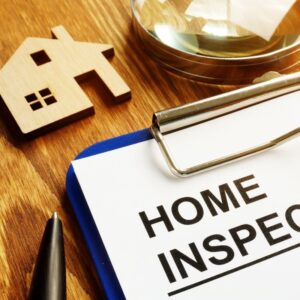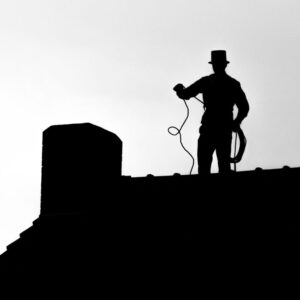Home and chimney inspections are both important, particularly when a property is changing hands. However, the two aren’t the same, and they require different sets of expertise to get the most from each.
What Do Home Inspectors Do?
Home inspectors are qualified professionals who give a holistic view of a property’s overall condition and functionality. Interior and exterior parts of the home are checked for defects that need to be addressed in a non-invasive way. In a real estate transaction, this allows buyers the opportunity to request that concerns be addressed before the sale is finalized.
Some things a home inspector will do are:
 Evaluate foundation, walls, ceilings and floors for signs of damage or structural problems.
Evaluate foundation, walls, ceilings and floors for signs of damage or structural problems.- Check the interior for issues such as water damage, mold, or infestation by pests.
- Examine the roof, gutters, and siding for proper functionality
- Assess mechanical systems such as the HVAC, plumbing, and electrical systems for potential hazards.
- Ensure safety components like smoke alarms and carbon monoxide detectors are in place and functional.
What Home Inspectors Don’t Do
Home inspectors don’t perform specialized inspections of one particular area – the chimney. This means that your chimney, as an important home system, will get some general attention, but some issues could go unnoticed.
During a home inspection, the chimney may be visually inspected for readily apparent issues and visual damage like cracking. This includes readily accessible and visible parts of the wood stove, fireplace, chimney or vent pipe. The inspector will also check whether damper doors are functional, if they’re readily accessible.
However, it’s not the inspector’s job to evaluate the chimney’s suitability for actual use. A home inspector isn’t required to check the flue or ventilation system of a fireplace and wood stove or test any components. They also won’t determine if a chimney needs to be swept for safe operation.
What Do Chimney Inspectors Do?
Chimney inspections are specialized to assess the condition and safety of the chimney or vent pipe for fireplace and wood stove systems. Since these are crucial systems that impact the overall condition of a property a great deal, it’s important that chimney technicians identify potential hazards and ensure proper functionality.
If you’re buying or selling a house, a level two or real estate chimney inspection is the minimum standard of inspection.
An inspection will put expert eyes on the structural components of your chimney and home heating appliance and will be alert to creosote build up, blockages, and other potential issues that could impair function and efficiency or compromise system integrity.
Leveling Up: Level 2 Chimney Inspections
Different levels of chimney inspections can be performed to suit a situation’s needs.
If you’re buying or selling a house, a level two or real estate chimney inspection is the minimum standard of inspection.
So…what’s a level 1 inspection?
A level one inspection is generally sufficient provided that no changes have been made and the system seems to be operating as it has in the past year. A level two inspection is necessary, however, if changes have been made to the structure, if there’s been a fuel type conversion, if lots of time has lapsed since the last inspection, or if an alteration (such as relining) has been made to the flue – or, as mentioned, in the event that you’re buying or selling a home with a fireplace.
While a level one inspection is thorough, a level two inspection will give more detailed attention to less readily accessible parts of a system to provide a more in-depth assessment. One of the distinctives of this level of assessment is the use of specialized tools like cameras to inspect the chimney’s interior.
Your annual chimney inspections are typically level one inspections. However, if you suspect damage or have suffered a damage causing event such as a lightning strike or chimney fire, you should call to schedule a level two or three inspection, depending on what the situation calls for.
What Level Do I Need?
 Uncertain about what kind of inspection you need? Reach out to our team. We’re family owned and motivated by our customer’s safety and satisfaction. We’ll guide you through the process of determining how to keep your chimney system healthy like we would any member of our family.
Uncertain about what kind of inspection you need? Reach out to our team. We’re family owned and motivated by our customer’s safety and satisfaction. We’ll guide you through the process of determining how to keep your chimney system healthy like we would any member of our family.
Also, you may wonder: If your property is changing hands, but there’s no known history of change, damaging event, or concern, is a level one inspection sufficient?
In the event of a real estate transaction, level two or real estate chimney inspections can give peace of mind to both buyers and sellers by ensuring the chimney is working properly and revealing any necessary repairs or maintenance needs.
If required, issues can then be addressed or appropriate negotiations can be made. When buying or selling something as significant as a home, minimizing surprises is usually a good thing. You don’t want to discover a big expense after the papers have been signed. And a clean bill of chimney health can give you confidence when moving your family into a new home.
Getting the Right Professional for the Right Job
Home inspectors do an important job – but they aren’t chimney professionals. Chimney services are what we provide day in and day out. Because we’re chimney, fireplace and wood stove specialists with over forty years of experience, we have the training and knowledge required to assess the integrity of a chimney system and identify the steps to take to make targeted, efficient, and thorough repairs if problems are to surface.
Call or book online today.

Recent Comments